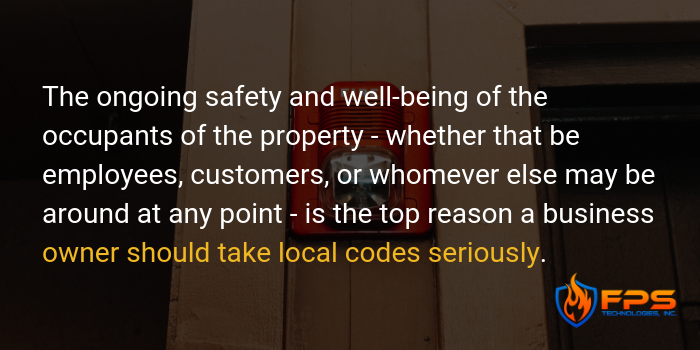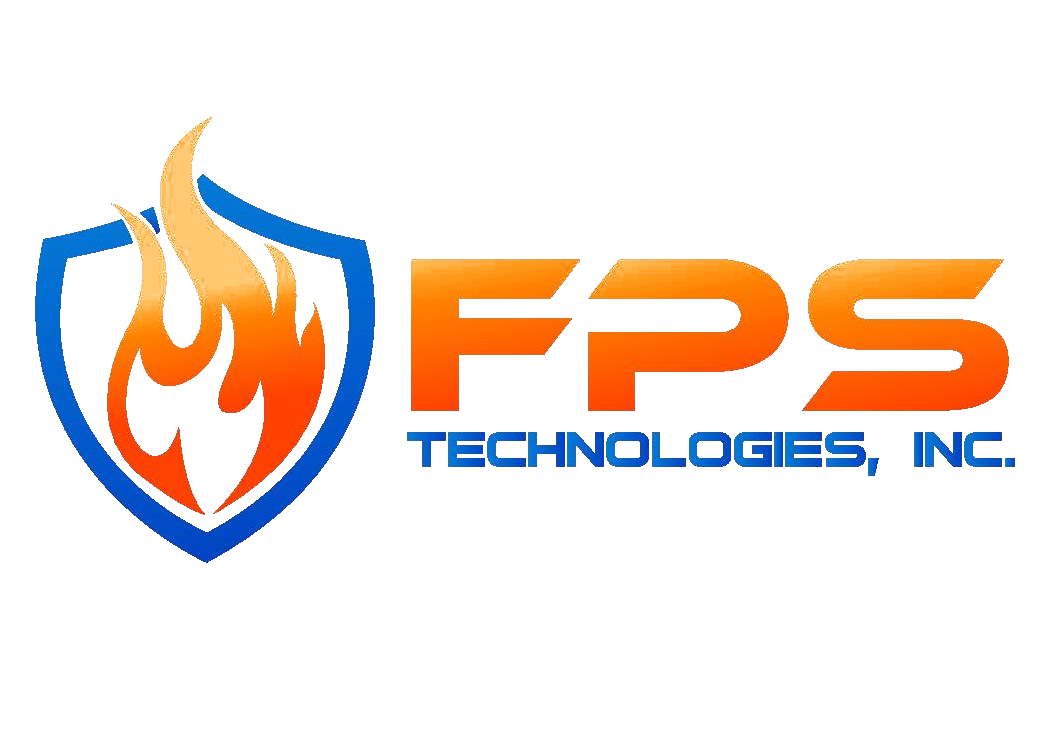Local codes are a thing of relative vagueness and ambiguity when it comes to a business owner’s perspective. For one thing, there are many, many codes - more than any one person could probably ever keep track of, for sure - and they vary as much as the scope of work from one business to the next does.
-2.png?width=700&name=FPS%20Article%20Graphics%20(3)-2.png)
It begs the question: why should a business owner care about keeping his or her understanding of local codes up to speed during a commercial remodel?
Firstly, the local codes are created and in existence for a reason, and for the most part, safety is the main concern. The ongoing safety and well-being of the occupants of the property - whether that be employees, customers, or whomever else may be around at any point - is the top reason a business owner should take local codes seriously.

Secondly, business owners that are well-versed & keep their company engaged when it comes to local codes generally are rewarded with cost deductions or savings of some sort when it comes to their business insurance.
As one could imagine, there are consequences for a business owner who does not follow local codes or take them seriously, at least to some degree.
Obviously, as stated above, it sets a precedent of relative negligence or lack of engagement for the overall safety of the occupants.
There also always exists the potential for life-threatening mechanical failures of the active life safety systems throughout the course of business.
Lastly, if local code lack of engagement and following is to a point where the fire marshal is made aware in some way, then his office can choose to send a notice to close the business until changes are made to meet the codes.
Below is a list of some of the important codes for business owners to be aware of when it comes to the fire protection industry:
- IBC (International Building Code) - intended to protect public health and safety while avoiding both unnecessary costs and preferential treatment of specific materials or methods of construction
- IFC (International Fire Code) - addresses conditions hazardous to life and property from fire, explosion, handling or use of hazardous materials and the use and occupancy of buildings and premises
- NFPA (National Fire Protection Association) 10, 13, 15, 17, 20, 25, 70, 72, & 101 - intended for clarity on the standards for: portable fire extinguishers; the installation of sprinkler systems; water spray fixed systems for fire protection; dry chemical extinguishing systems; the installation of stationary pumps for fire protection; the inspection, testing, & maintenance of water-based fire protection systems; National Electrical Code®; National Fire Alarm and Signaling Code®; and Life Safety Code®
- Local AHJ (Authority Having Jurisdiction) (aka fire marshal’s office or other building code enforcer)
For a business owner who realizes the need to “get with it” and start being on top of some of these things related to local codes, he or she might ask where the most readily available place is to find these codes and related information on them.
The answer to this question is simple. Information on most any local code can be found in a variety of ways, but mainly with a Google search online, at the city’s building & planning department, at the fire marshal’s office, or possibly local municipality websites, depending on the city/county.
In general, a business owner should do a code check to make sure their company is compliant on an annual basis. A good business practice would be to pick a time of the year where during which the specific industry is in a slower period, and take a morning or an afternoon to get caught up and research any updates or new codes that relate to their company’s dealings.

Local codes - and more specifically staying up on and remaining engaged with them - are obviously not a “fun” part of doing business. If it were, there wouldn’t be so many businesses that are neglecting that side of things. But with some careful thought and research once or twice a year, a successful business owner can stay compliant and rest assured that he or she is creating & maintaining a safe, efficient operation on the premises of the business.



